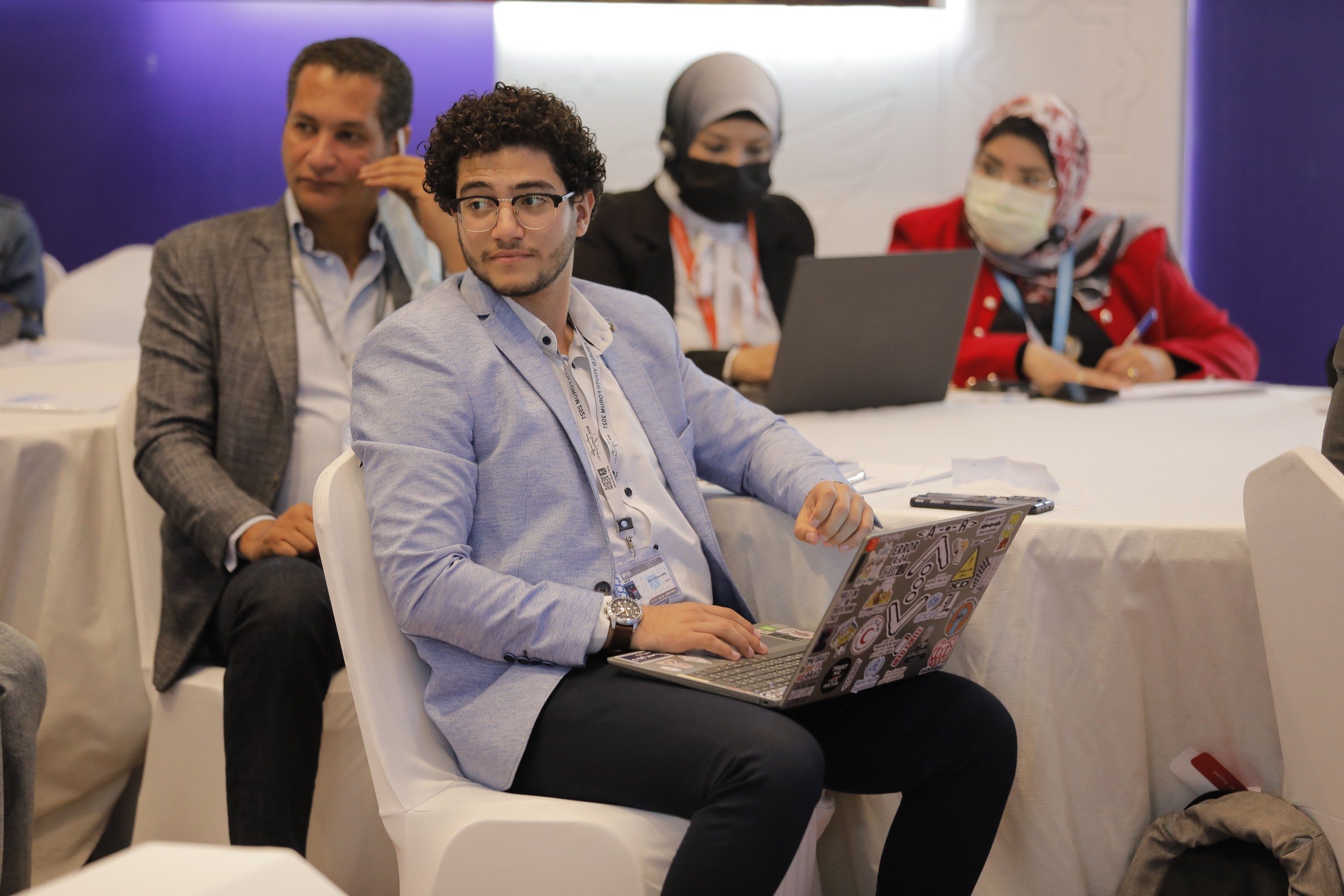Share

During the third day of the fourth edition of the World Youth Forum, in the presence of President Abdel Fattah Al-Sisi, President of the Republic, a number of speakers and youth participated in the main session entitled “Food Security: A Global Change”, with the participation of a list of speakers, Corinne Fleischer, Director of Supply Chains of the United Nations Agriculture of the United Nations (FAO), Maximo Torrero, Chief Economist at the Food and Agriculture Organisation of the United Nations (FAO), and Giotsna Puri, Assistant Vice-President of Strategy and Knowledge at the International Fund for Agricultural Development (IFAD).
The speakers shed light on several prominent axes regarding environmental issues in light of the Corona pandemic, the first of which is the issue of deteriorating food security, the climate effects on food security, and the efforts of countries and organisations to fight hunger. The session began with a speech by Xu Donio, Director-General of the Food and Agriculture Organisation of the United Nations (FAO), in which he praised the inclusion of food security in the agenda of the World Youth Forum because it has become an important topic in light of the increase in the number of hungry people and lack of access to food, especially after climate changes and the coronavirus pandemic. He explained that there are complete plans to empower young people everywhere to solve the food problem, such as the World Food Forum held in October 2020, adding that young people are excited. For change and they are ready to take responsibility, and that their innovation and energy at the World Youth Forum is the greatest proof of their ability to achieve the sustainable development goals in 2030.
Maximo Torrero, chief economist at the Food and Agriculture Organisation of the United Nations (FAO), thanked and appreciated the attendees. We have huge numbers of malnourished people and the figure is increasing after the coronavirus pandemic. He also mentioned that the number of people suffering in the Arab region is very large compared to the total population of the region. He explained that this is due
Corinne Fleischer, director of supply chains at the United Nations World Food Programme and regional director for the Middle East and North Africa, said during her speech that she went to Syria and met a woman in one of the conflict areas there, who was not wearing a protective mask and did not have any food. When she asked her about not wearing the mask, she replied that she would rather
Fleischer continued that today after the pandemic, the number of people who have descended into famine has increased significantly, as people line up in a long and very crowded queue. She stressed the importance of the role of governments in the work of rescue programs and social solidarity programs in supporting those who have lost their jobs. She also talked about the role of young people and the importance of empowering
Giotsna Puri, Assistant Vice President of Strategy and Knowledge at the International Fund for Agricultural Development (IFAD), stressed the importance of making food systems more sustainable in order to overcome the problems of climate change affecting the food crisis, increase food production and incomes for agricultural producers in rural areas and improve crop chains to improve food quality. She noted the important role of young people in engaging in organised policies. She also stated that the organisation cooperates with young people through initiatives with international development banks and in partnership with financing institutions to provide assistance through lending to farmers such as FAO risk management programs in Burkina Faso and Senegal.
Jeremy Hopkins, representative of the United Nations Motherhood and Childhood Organisation (UNICEF) in South Sudan, said that food insecurity is parallelled with poverty, especially after the coronavirus pandemic. He added that there are three types of malnutrition: the problem of stunting in children, the problem of waste, and the problem of obesity that affects children around the world. Hopkins also explained that 45% of children around the world die under the age of five because of their death due to malnutrition, appealing to invest in eliminating malnutrition.
Richard J. Hopkins, Professor of Behavioural Entomology and Head of the Department of Agriculture, Health and Environment at the Natural Resources Institute at the University of Greenwich, added that climate change affected the food crisis by exacerbating the problems of crop irrigation, which emerged due to changing rainfall, and thus affected the amount of crop diversity, which was reflected in poor diet. He added that new irrigation methods must be devised, as well as the importance of facing several climate problems that directly affect food such as locust proliferation, lack of nutrients, pollution, and increased carbon.
Tristram Stewart, an international writer and author, added that the problem of food waste is one of the biggest global food problems and at the same time the easiest to solve. He also called for reducing food waste and reducing food consumption, especially meat and dairy. He recommended that government and behavioural policies for individuals are needed by changing community culture.
The session concluded with the issuance of a number of proposed recommendations to solve that crisis, including working to change the behaviour of individuals and the policies of governments and solving some of the problems that affect the food crisis, such as the problem of inequality, which we see as the lack of vaccines in some countries, adopting recovery plans for developing countries, using the private sector to solve that crisis, enhancing dealing with entrepreneurs and modern technology, improving infrastructure and means of communication to reach high-quality products that are important for enjoying healthy diets, expanding insurance and social protection systems, and increasing the demand for healthy food, especially among young people and women.
In addition to making better use of water and making sure that it is clean and safe because it affects nutrition, especially in children, taking into account the child’s education of healthy behaviours by parents to maintain health, activating community participation to reduce food waste in order to solve the problem before 2030 through new electronic applications to share surplus food with neighbours and needy, adopting intergovernmental policies to reduce waste in cooperation with world public opinion.
Furthermore, the session recommended increasing investment in ecotherapy to improve the soil, increase fertility, and increase water retention to improve the quality of the food product, and dedicate young people through their jobs to solving the crisis, in addition to launching community initiatives in developing countries to help eliminate that crisis, such as the Presidential Initiative, a Decent Life in Egypt, opening channels of communication with society and providing information and academic science.
STAY IN THE LOOP





